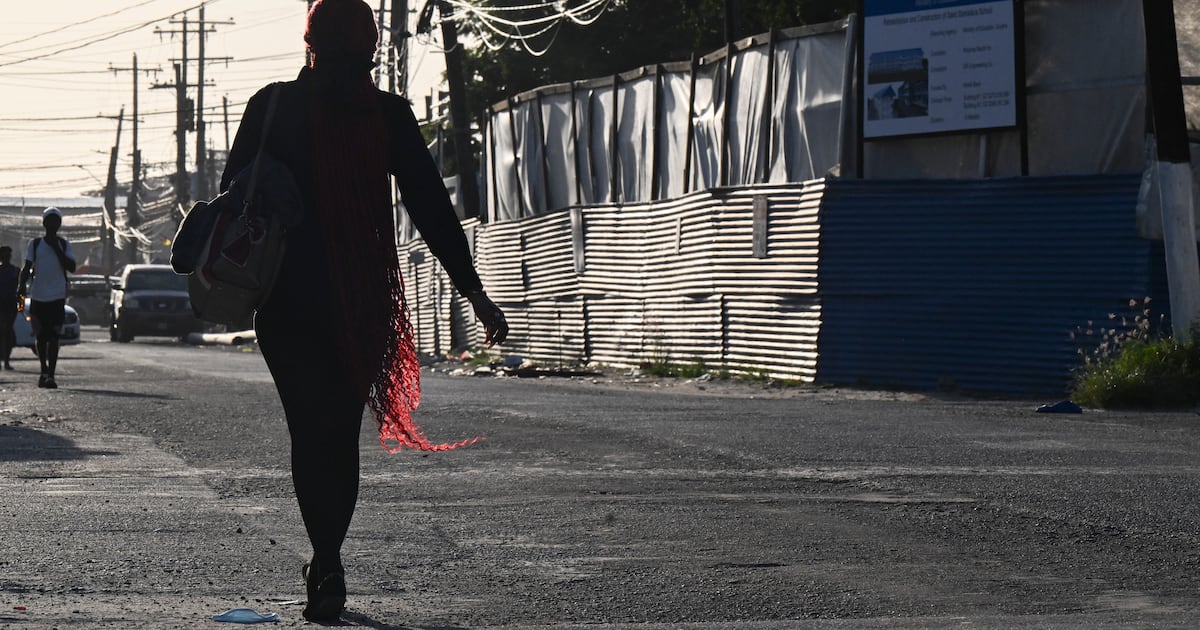World
Guyana’s Oil Wealth Sparks Economic Divide as Elections Loom

Residents of Waiakabra, a village located south of Guyana’s capital, are expressing skepticism about the economic benefits derived from the country’s oil boom. Despite being heralded as one of the fastest-growing economies globally, with an anticipated GDP growth of over 43 percent in 2024, many locals report struggling to make ends meet. The situation raises questions about the distribution of wealth generated by the oil sector, primarily controlled by ExxonMobil since major discoveries began in 2015.
Yanick, a 26-year-old landscaper, articulates a common sentiment: “We keep hearing about this oil, but where is all this money going?” His frustration mirrors that of other residents who feel disconnected from the financial windfall that has enriched the nation. Fellow villager Arleen, a 31-year-old housewife, echoes these concerns, citing the rising cost of living as a significant challenge for her family. “Someone needs to look into pricing in the shops and provide more support for communities,” she urges.
As Guyanese prepare for presidential and parliamentary elections on March 15, 2024, these voices of discontent are increasingly significant. The elections will determine whether President Irfaan Ali and his People’s Progressive Party (PPP) maintain control in a nation of approximately 830,000 people. Although the PPP is expected to prevail, opposition parties, including the A Partnership for National Unity and Alliance for Change, are hopeful that dissatisfaction among voters will shift the political landscape.
The disconnect between oil wealth and daily living expenses has been a recurring theme in reports by Stabroek News, particularly in their weekly cost-of-living series. Editor-in-chief Anand Persaud emphasizes the stark reality that while the nation’s wealth is increasing, many citizens are left behind. “Even though you’re getting richer, people down the bottom are getting poorer,” he stated. His publication’s ongoing investigations reveal that many individuals are struggling to secure basic necessities, such as three meals a day.
Local organizations, including Red Thread, a grassroots women’s NGO, are also voicing concerns over the high cost of living juxtaposed against the backdrop of oil riches. “We notice that prices in the market have gone sky high,” said Wintress White, a representative of the group. She criticized government spending priorities, noting that while the budget for 2024 totals $1.3 trillion, more funds are allocated toward infrastructure than towards social welfare programs.
Critics of the government’s approach point to the 2016 Production Sharing Agreement with ExxonMobil, which has come under scrutiny for granting substantial tax exemptions to oil companies. This agreement is perceived to deprive the state of significant revenue while benefiting foreign corporations. White remarked, “If a person earns over a certain amount of money, they’re asked to pay tax, yet Exxon and its partners are being granted tax exemptions and they are making so much money.”
While the oil and gas sector is generating jobs, with approximately 6,200 individuals directly employed or supporting the industry according to ExxonMobil Guyana, many residents argue the benefits are insufficient. The government has launched infrastructure projects, such as the development of a sustainable city known as Silica City and the construction of a new Demerara Harbour Bridge. Additionally, cash grants and increased public assistance have been announced as part of the government’s re-election manifesto.
Yet, many citizens believe that cash grants are not a sustainable solution. Joy Marcus of Red Thread stated, “What is necessary is for the government to improve its services.” She advocates for systemic changes rather than temporary financial aid to address the root causes of poverty.
Political scientist Prof Ivelaw Griffith warned about the potential consequences of direct cash distributions from the oil wealth. He cautioned that this might negatively impact work ethic and contribute to inflation. Griffith stressed the importance of balanced development, saying, “It can’t be either the individual citizen getting the cash or the society getting infrastructure. It’s got to be both. And both take time.”
Legal expert Melinda Janki, who represents ordinary Guyanese in public interest litigation against the government and ExxonMobil, criticized the narrative that equates GDP growth with overall prosperity. She highlighted the need for a more nuanced understanding of wealth distribution, noting that existing measurements do not adequately capture the realities faced by many citizens.
As the elections approach, the voices from Waiakabra and other communities may serve as a crucial reminder of the ongoing challenges in ensuring that oil wealth translates into tangible benefits for all Guyanese. The outcome of the elections could shape the country’s future, influencing how oil revenues are managed and whether the government can address the growing economic divide.
-

 Top Stories3 months ago
Top Stories3 months agoTributes Surge for 9-Year-Old Leon Briody After Cancer Battle
-

 Entertainment4 months ago
Entertainment4 months agoAimee Osbourne Joins Family for Emotional Tribute to Ozzy
-

 Politics4 months ago
Politics4 months agoDanny Healy-Rae Considers Complaint After Altercation with Garda
-

 Top Stories4 months ago
Top Stories4 months agoIreland Enjoys Summer Heat as Hurricane Erin Approaches Atlantic
-

 World5 months ago
World5 months agoHawaii Commemorates 80 Years Since Hiroshima Bombing with Ceremony
-

 Top Stories3 months ago
Top Stories3 months agoNewcastle West Woman Patricia Foley Found Safe After Urgent Search
-

 Top Stories5 months ago
Top Stories5 months agoFianna Fáil TDs Urgently Consider Maire Geoghegan-Quinn for Presidency
-

 World5 months ago
World5 months agoCouple Convicted of Murdering Two-Year-Old Grandson in Wales
-

 World5 months ago
World5 months agoGaza Aid Distribution Tragedy: 20 Killed Amid Ongoing Violence
-

 World5 months ago
World5 months agoAristocrat Constance Marten and Partner Convicted of Infant Murder
-

 Top Stories4 months ago
Top Stories4 months agoClimbing Errigal: A Must-Do Summer Adventure in Donegal
-

 Top Stories4 months ago
Top Stories4 months agoHike Donegal’s Errigal Mountain NOW for Unforgettable Summer Views









